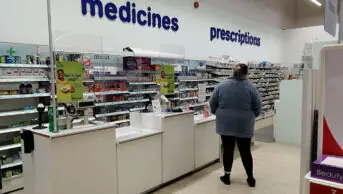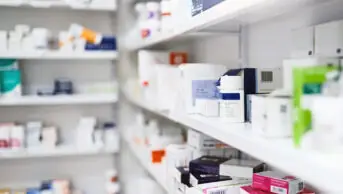
Healthcare Distribution Agency
The Healthcare Distribution Association (HDA), which represents drug wholesalers and distributors, has already met with the Department of Health and Social Care (DHSC) to discuss contingency measures in the event of a “no-deal” Brexit, its executive director has told The Pharmaceutical Journal.
“We are talking to the government to try and assess what the preparedness state is at the moment [in the event of a no deal],” Martin Sawer, executive director at the HDA, has said.
“It’s about understanding the capacity of the UK market and building up a buffer stock should there be a no-deal scenario. Communication is going to be key.”
Sawer said that the current discussions and moves being suggested mirror those which would traditionally happen in anticipation of a pandemic flu outbreak, or the steps that were taken across the sector around potential medicine demand before the Olympic Games in London in 2012.
He said it is likely that wholesalers will request extra stock from their pre-wholesaler suppliers from January 2019 until March 2019, when the UK is scheduled to depart the EU.
“The other role we have is to talk to the pre-wholesalers, who supply wholesalers, to ‘sensitise’ them to our demands and quantities of medicines that we need, so that there aren’t any gaps [in the supply chain],” he said.
Sawer was unable to predict which specific extra drug stock might be needed and expected that decision would be down to the DHSC.
“Each medicine will be looked at in terms of its route and how it will get to pharmacies — the devil will be in the detail.
“The government is doing the best that it can and it would be irresponsible if it was not doing any planning in the event of a no deal.
“One person not getting their critical medicine if there is no deal is one person too many.”
On 24 July 2018, health and social care secretary Matt Hancock told a meeting of the House of Commons health select committee that he had asked civil servants to “accelerate” plans, including preparation for the potential need for stockpiling of drugs, to deal with the consequences of the UK leaving the EU in 2019 with no agreement in place.
President of the Royal Pharmaceutical Society (RPS), Ash Soni, said that the risk of the Brexit resulting in delays in patients accessing medicines was a concern widely recognised across the healthcare sector.
“With some medicines manufacturers now talking about contingency plans to stockpile medicines in the absence of a negotiated deal, we are engaging with regulators and the NHS about their plans to minimise any potential disruption to the medicines supply chain.
“It’s understandable that current uncertainties about Brexit are raising concerns about patient care. Ultimately, I’m confident that pharmacists will continue to ensure that patient safety remains their top priority, and that the RPS will be on hand to help the profession manage future changes.”


